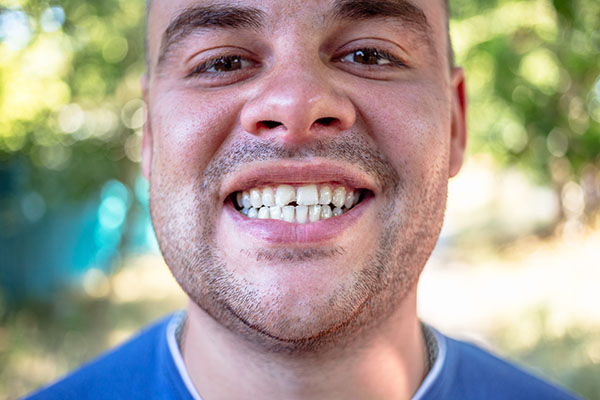Endodontic Therapy Omaha, NE
Endodontic therapy, also known as root canal therapy, treats the insides of teeth to relieve pain and save teeth. Endodontists are dentists with additional training in these procedures. Our team guides patients comfortably through the process, from preparation to aftercare.
Endodontic therapy is available at Endodontic Specialists, PC in Omaha and the surrounding area. Our team offers a range of services, including root canal procedures. Call us at (402) 401-7777 to learn more.
Endodontic Therapy Explained
A tooth can be inflamed or infected for a number of reasons. Sometimes a crack or chip to a tooth may make it vulnerable to infection. Repeat dental procedures on the same tooth are another reason some teeth are more prone to infection. Cavities, if left untreated, can progress, causing bacteria to enter the pulp chamber of a tooth and cause infection. Poor dental hygiene may make it easier for damaging bacteria to reach the insides of teeth. This causes an infection that requires professional removal.
Root canal or endodontic therapy is the process of removing an infection from the inside of a tooth. It can repair and save a tooth that has been badly decayed or infected. The procedure relieves pain, prevents the worsening of the infection, and stops it from leading to complications such as a tooth abscess. Another important goal of endodontic therapy is to prevent the need for tooth extraction and replacement. If an infected tooth is not treated with endodontic therapy, it may also lead to swelling that spreads to other areas of the head and bone loss at the tooth root tip.
“The procedure relieves pain, prevents the worsening of the infection, and stops it from leading to complications such as a tooth abscess.”
Root Canal by an Endodontist
Both dentists and endodontists are well qualified to perform root canals. However, endodontists have extra training, education, and experience in treating the insides of teeth with these types of procedures. A dentist is usually concerned with a person's overall dental health. Dentists tend to act as oral health primary care providers. Dentists offer cleanings, fill cavities, provide oral healthcare advice, and may be able to perform root canals when needed.
The endodontist is a specialized dentist with extra training in procedures like root canals that focus on treating problems that happen with the tooth pulp inside the teeth. While the typical dentist averages two root canals per week, the typical endodontist averages 25 per week. Therefore, one can see why an endodontist might be the recommended choice to perform a root canal procedure, especially in complex cases. Often, a general dentist will refer a patient out to an endodontist if they feel the patient's case calls for it.
“While the typical dentist averages two root canals per week, the typical endodontist averages 25 per week.”
Before Endodontic Therapy
There is not much one needs to do in order to prepare for a root canal besides try and relax. Those who plan on being sedated for the procedure should arrange a ride home after. The sedation may not wear off for a while and make it unsafe for the patient to drive themself. However, discomfort during the procedure is often minimal, and most find they do not need sedation. Patients can benefit from taking an over-the-counter pain reliever and anti-inflammatory before the procedure if this is a concern.
Patients should eat a big meal a few hours before the procedure because they will have to wait a few hours after the procedure to eat again. Patients are also urged not to smoke as this may hamper healing. In addition, it may be advised that a patient take an antibiotic to guard against infection. This is a step one can discuss in more detail with the practitioner.
“Those who plan on being sedated for the procedure should arrange a ride home after.”
Check out what others are saying about our dental services on Yelp: Endodontic Therapy in Omaha, NE
The Procedure
Knowing what to expect from endodontic therapy goes a long way in easing the anxiety about it. We encourage patients to read up on the procedure to have an idea of what to expect. Though each process may be a little different depending on the patient's case, they tend to follow the same basic steps.
The steps to endodontic or root canal therapy may take place over a few appointments. The process starts with the endodontist removing everything from the inside of the tooth. Next, the practitioner rinses and disinfects the inner area of the tooth after removing the pulp. Finally, a rubber-like material fills the tooth's root canals and seals the pulp chamber with adhesive cement. If the treated tooth is a molar or premolar, it may need to be reinforced with a dental crown. This is typically done by a dentist in a separate appointment.
“Though each process may be a little different depending on the patient’s case, they tend to follow the same basic steps.”
Questions Answered on This Page
Q. Why is endodontic therapy performed?
Q. Why should I see an endodontist for a root canal?
Q. How should someone prepare for endodontic therapy?
Q. What are the steps of endodontic therapy?
Q. What are the aftercare instructions for endodontic therapy?
People Also Ask
Q. What could happen if I put off a root canal?
Q. What is the difference between a dentist and an endodontist?
Q. Can an endodontist treat dental trauma?
Q. What are some of the most common endodontic procedures?
Aftercare
For successful endodontic therapy, following proper aftercare instructions are important. The endodontist should give instructions specific to the patient's case, and they should be understood before leaving. It is a good idea for the patient to ask questions before the procedure if anything is unclear, as they are likely to want to go home right after the procedure.
Typically, recovery takes a few days unless there are complications. There will be some soreness and sensitivity that are usually manageable with over-the-counter medicine. Avoiding cold food and drink is advised, as is not chewing at all for several hours after. During the healing period following the procedure and the period between the procedure and when a crown is placed (if needed), patients should stick to eating soft food. It is not only important to avoid smoking after the procedure but also to avoid exercise as well. An ice pack may help bring down any swelling, and rest helps aid in healing.
“The endodontist should give instructions specific to the patient’s case, and they should be understood before leaving.”
Frequently Asked Questions
Q. What are some possible complications of endodontic therapy?
A. Complications are rare, but they do happen. Continued infection if bacterial is not completely removed and displacement to the seal on the treated tooth are among the most common complications. However, our team makes every effort to avoid these complications and can handle them swiftly if they arise.
Q. How do I know if something is going wrong during the healing process?
A. The signs of complications from endodontic therapy feel much like the symptoms you experienced when your realized you needed treatment. If tooth pain gets worse instead of better or if there is pus near the treatment site, call our office right away. Other signs of trouble include fever and swelling and irritation that gets worse instead of better.
Q. If my child has an infection in a baby tooth, should it just be extracted?
A. Actually, there are advantages to saving baby teeth. The root canal procedure on a primary tooth is referred to as a pulpectomy or a baby root canal. Primary teeth are placeholders for the adult teeth and having them there until they naturally fall out helps the smile hold its proper alignment.
Q. How uncomfortable is endodontic therapy?
A. The root canal procedure has an undeserved reputation for being painful. Though it may sound like it would be painful at first, the procedure is in part designed to relieve pain by removing the infection and eliminating the resulting inflammation. Also, endodontists have an in-depth understanding of pain management and are able to apply techniques to minimize discomfort. Most agree that a root canal is far less uncomfortable than a tooth extraction.
Q. How expensive is endodontic therapy?
A. There is no exact answer for this. The particulars of your case will affect what you pay. Your dental insurance will also factor into the cost. However, a root canal procedure is likely to be much less expensive than extracting the tooth and replacing it.
Start Feeling Better – Visit Us Today
By visiting us as soon as possible, our team can help get you the professional treatment you need. Instead of waiting around and allowing the symptoms to get worse, we can provide you with treatment options.
Definitions
Call Us Today
If you are having pain in a tooth due to infection or injury, an endodontist can help. Endodontic therapy can relieve pain and save teeth. Call Endodontic Specialists, PC today at 402-401-7777 to schedule an appointment.
Helpful Related Links
- American Association of Endodontists. Root Canal Treatment. 2024
- Boston Children’s Hospital. Dentoalveolar Infections. 2024
- Cleveland Clinic. What is an endodontist? 2024
- Mayo Clinic. Cavities/tooth decay. 2024
- National Library of Medicine. Complications in Endodontics. 2024
- ScienceDirect. Pulpectomy. 2024
- University of Illinois at Chicago College of Dentistry. The Value of Preventive Oral Health Care. 2024
- Verywell Health. The Names and Numbers of Human Teeth. 2024
About our business and website security
- Endodontic Specialists, PC was established in 1992.
- We accept the following payment methods: American Express, Cash, Check, Discover, MasterCard, and Visa
- We serve patients from the following counties: Douglas County and Dodge County
- We serve patients from the following cities: Omaha, Benson, Florence, Bellevue, Fort Calhoun, Richfield, LaPlatte, Cedar Creek, Plattsmouth, Fremont and Elkhorn
- Norton Safe Web. View Details
- Trend Micro Site Safety Center. View Details
Back to top of Endodontic Therapy










